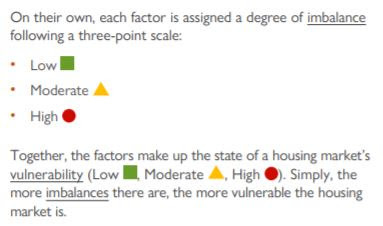Can we talk about the affordable housing/renting situation in Canada right now?!
Rising home prices, high demand, a lack of affordability and a global pandemic? Sounds like we have a crisis on our hands.
Welcome to the 48th issue of The Supplement, a newsletter that fills in the gaps of your other news intake. This is Sierra, one-third of The Supplement team!
Each week, we pick a question submitted by you, our readers. If you’d like to submit a question for a future week, then email us at thesupplementnewsletter@gmail.com or reach out to us on Twitter or Instagram.
If you like what you read each week, consider buying us a coffee ☕
This week, we’re tackling this question: Can we talk about the affordable housing/renting situation in Canada right now?!
TL;DR: Canada’s housing agency says that rising home prices and continuously high demand are creating a vulnerable housing market. Pair that with a lack of affordability and a global pandemic? It sounds like we have a crisis on our hands. And recent reports say that it’s getting worse, even just within this year. A re-elected Liberal government has plans to address the situation, but critics say the party which has been in power for six years doesn’t have much of a plan at all.
This week, the Canada Mortgage and Housing Corp (CMHC) released its latest Housing Market Assessment, and the biggest takeaway is that most parts of the country’s housing market have moved from a “moderate to a high degree of vulnerability.”
But like, what does that even MEAN? Let’s get into it.
A few terms from the CMHC before we get going:
Overheating: when demand significantly outpaces supply
Price acceleration: when house prices rise at an increasing pace over a sustained period
Overvaluation: when house prices differ significantly from their level consistent with housing market fundamentals (such as labour income, population and interest rates)
Excess inventories: when there is an unusually high level of vacant housing units
CMHC analyzes Canada and its major cities for evidence of these keywords. Read them one more time!
Now here’s what the report has to say:
“Home price acceleration, alongside continued overvaluation, as home prices further detach from fundamental factors, such as labour income, has created a high degree of vulnerability in Canada’s housing market.”
(Depending where you live, you probably already feel this. Like the average salary can’t buy you a home that fits your needs.)
This year, the number of home sales in Canada reached a historic high, but there are still signs of market overheating. The report did not find much evidence of excess inventories, meaning there are not a lot of vacant or unsold units (including rental vacancies).
Download the report to see more detail about your specific region.
The Globe’s real estate reporter Rachelle Younglai writes that this is the second time CMHC has issued this warning for the entire country; the first was when prices rose at a record pace in Toronto and Vancouver five years ago.
But this CMHC report does not assess affordability. That’s to say that even if the housing market assessment found a low level of market vulnerability, those with lower income might still have a hard time finding good shelter that is within their financial range.
An affordability report from RE/MAX this summer said that one in three Canadian homebuyers is exploring alternative options to help them get a foot into the housing market, such as pooling money with family or friends or living in a shared living arrangement. That doesn’t sound like actual affordability to me.
The last federal election was pretty dull — but if you rewind to just last week, housing was talked about as a key platform issue since experts now say this crisis requires government attention. Some would say that’s because the crisis was created by the government.
Justin Trudeau’s Liberals, with their newly (sort of) elected minority government, pledged to “build, preserve or repair” 1.4 million homes over the next four years. Their website says they will increase and substantially renovate the supply of rental housing as well.
But Trudeau has been Prime Minister since 2015, and critics of the Liberals plan have called it an “incoherent jumble.” Reporter Justin Ling wrote about a Parliamentary Budget Officer report on the party’s national housing strategy, calling it a worrying document. “Critical housing funding for low-income people is declining. Spending on new construction was delayed and less than promised,” he writes.
For me, it’s difficult to talk about the housing crisis without mentioning this is happening at the same time as we read about encampments being raided in my city of Toronto. This first-person story filled me with rage as I read about how a Black woman who showed up to support encampment residents, such as those who experienced violence at the hands of police this year, was tackled by plain-clothed officers on her way home.
Another sign of a broken system? CBC reports that since Toronto began forcibly evicting encampment residents from parks (during the COVID-19 pandemic), only eight per cent have made it into permanent housing. That’s according to the city’s own data.
Here’s someone to follow:
This week we recommend you follow Ahmar Khan, a reporter with Global News who focuses on issues surrounding vulnerable people, racialized communities and politics. He has been a great resource on my own Twitter feed, and this week has been speaking out about the harassment reporters of colour, especially women, get for the type of work he does. It’s tough to see. Show him some love!
Here’s a story to check out:
A story that brought tears to my eyes this week was reading through The Skyluck Journals. Written by Andrew Nguyen for CBC First Person, it’s a memoir of his family fleeing Saigon in 1979. The story is partly a compilation of journal entries from his mother, Tina, who documented the difficult 18-month journey to Canada. It’s beautiful in writing and presentation.






